Transcended Trucel
Peace & Dharma ; Vishwaguru India!
★★★★★
- Joined
- Feb 16, 2019
- Posts
- 48,643
I am looking at the demographic charts and birth rates. In the long run those will define reality.what are you smokin lol
I am looking at the demographic charts and birth rates. In the long run those will define reality.what are you smokin lol
I think China today is what the US viewed USSR at the height of the cold war - a realistic competitor that could overtake us. But China has made the same problem that the USSR did all those years ago, namely isolating itself and being unfriendly to foreign collaboration and investment. I see China being like Russia in the 22nd century. Maybe worse because USSR didn't also have a population bomb problem.Realistically, I see the 22nd century as a more equal world overall compared to what we have now with more of the center being in east asia.
That is all.
The west will still be influential but the days of total white male economic, military, and sexual dominance will be over (primarily because of China and China's uplifting of African nations). Right now we are living the last days of white male total domination and the white male's patronizing attitude towards Asians/Africans.
Its this weird thing about Anglo-American culture to want to be seen as the savior yet at the same time do nothing but constant patronizing and lecturing.
Other people see that and don't like it yet people will go along with it anyways because of America's economic supremacy. That applies domestically within America as well as internationally.
Absolutely nailed itRealistically, I see the 22nd century as a more equal world overall compared to what we have now with more of the center being in east asia.
That is all.
The west will still be influential but the days of total white male economic, military, and sexual dominance will be over (primarily because of China and China's uplifting of African nations). Right now we are living the last days of white male total domination and the white male's patronizing attitude towards Asians/Africans.
Its this weird thing about Anglo-American culture to want to be seen as the savior yet at the same time do nothing but constant patronizing and lecturing.
Other people see that and don't like it yet people will go along with it anyways because of America's economic supremacy. That applies domestically within America as well as internationally.
Nigeria will overtake China's population by 2100 , Nigeria will be no.2 in world population with 760 million people . Chinas population will have halved to 730 million, Curries will be no.1 with 1 billion Indian populationAfrica's birthrates are also falling quite quickly, they are just so much above the rest that it will take a while for them to hit the replacememnt level. Still, their predicted peak population is being revised downwards pretty much every year now.
They do have absolutely incredible potential if they properly industriliaze and adopt modern technologies though. With how backwards and isolated substantial parts of Subsaharan Africa are, just connecting them to the rest of the world will be a game changer. That said, it's not like the rest of the world will just disappear or anything.
Africa has the potential to kinda be the motor of world economy in a sense thanks to its massive population of young workers, but robots are already being mass produced and used in the developed world, most notably in East Asia, which will blunt this advantage of Africa somewhat, and Africa will still not have absolute majority of the world's population, so although they'll collectively be a major player, they won't dominate it because at that point, really nobody will be capable of world domination anymore with everyone else wealthy and advanced as well.
Absolutely nailed it. Tbh, we'll probably see most, if not all of this by mid-21st century already, the world is changing crazy quickly when you keep up with the relevant news
.
They are in a completely different situation than the USSR in terms of isolation and so on though?I think China today is what the US viewed USSR at the height of the cold war - a realistic competitor that could overtake us. But China has made the same problem that the USSR did all those years ago, namely isolating itself and being unfriendly to foreign collaboration and investment. I see China being like Russia in the 22nd century. Maybe worse because USSR didn't also have a population bomb problem.
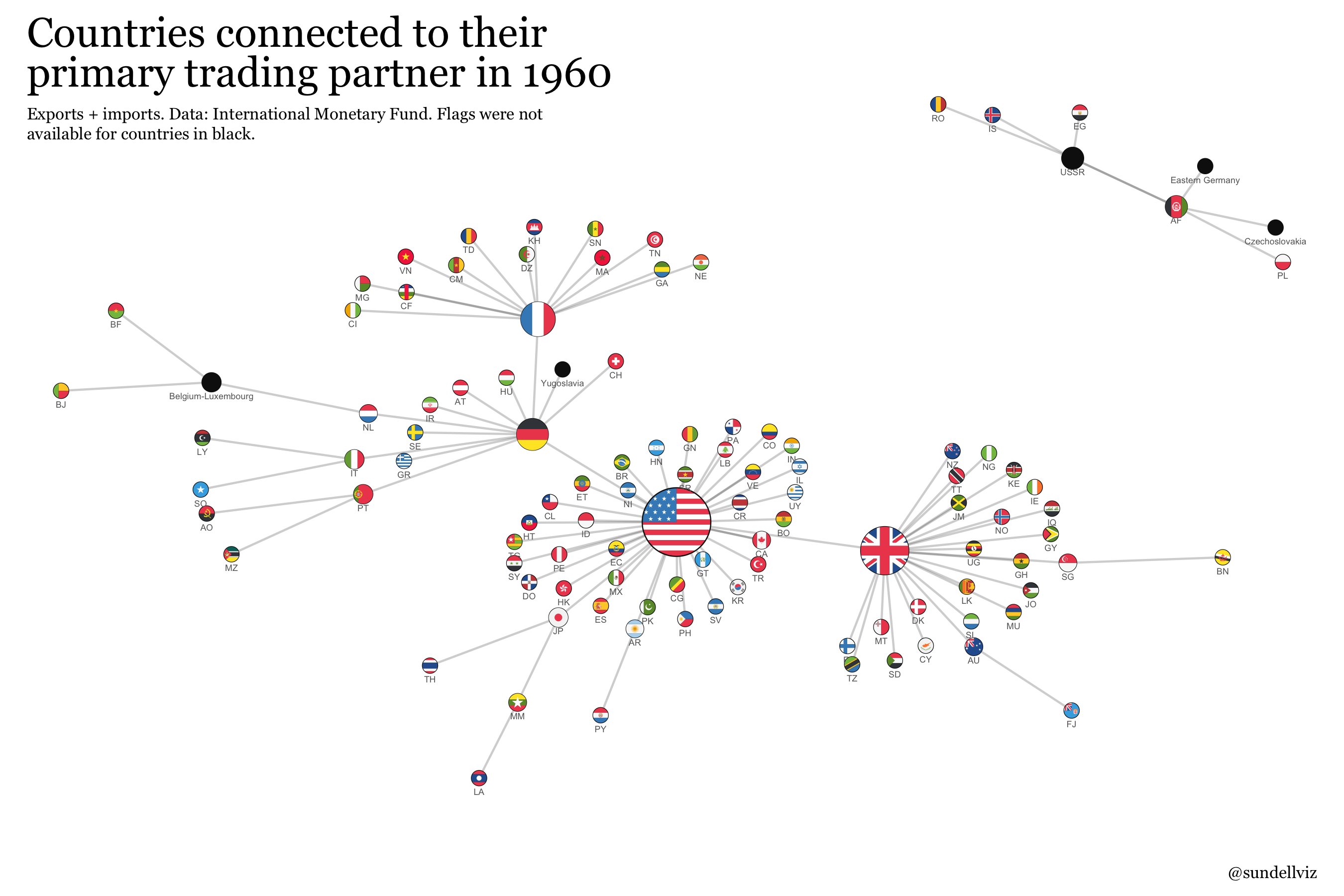
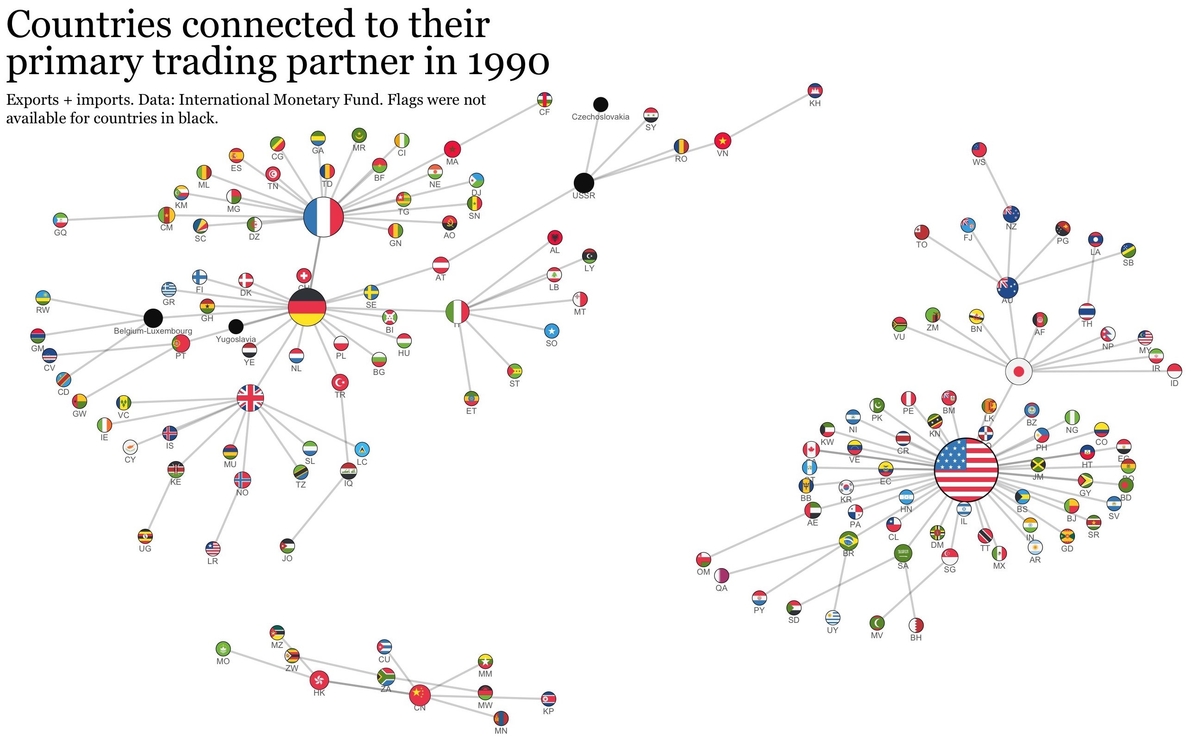
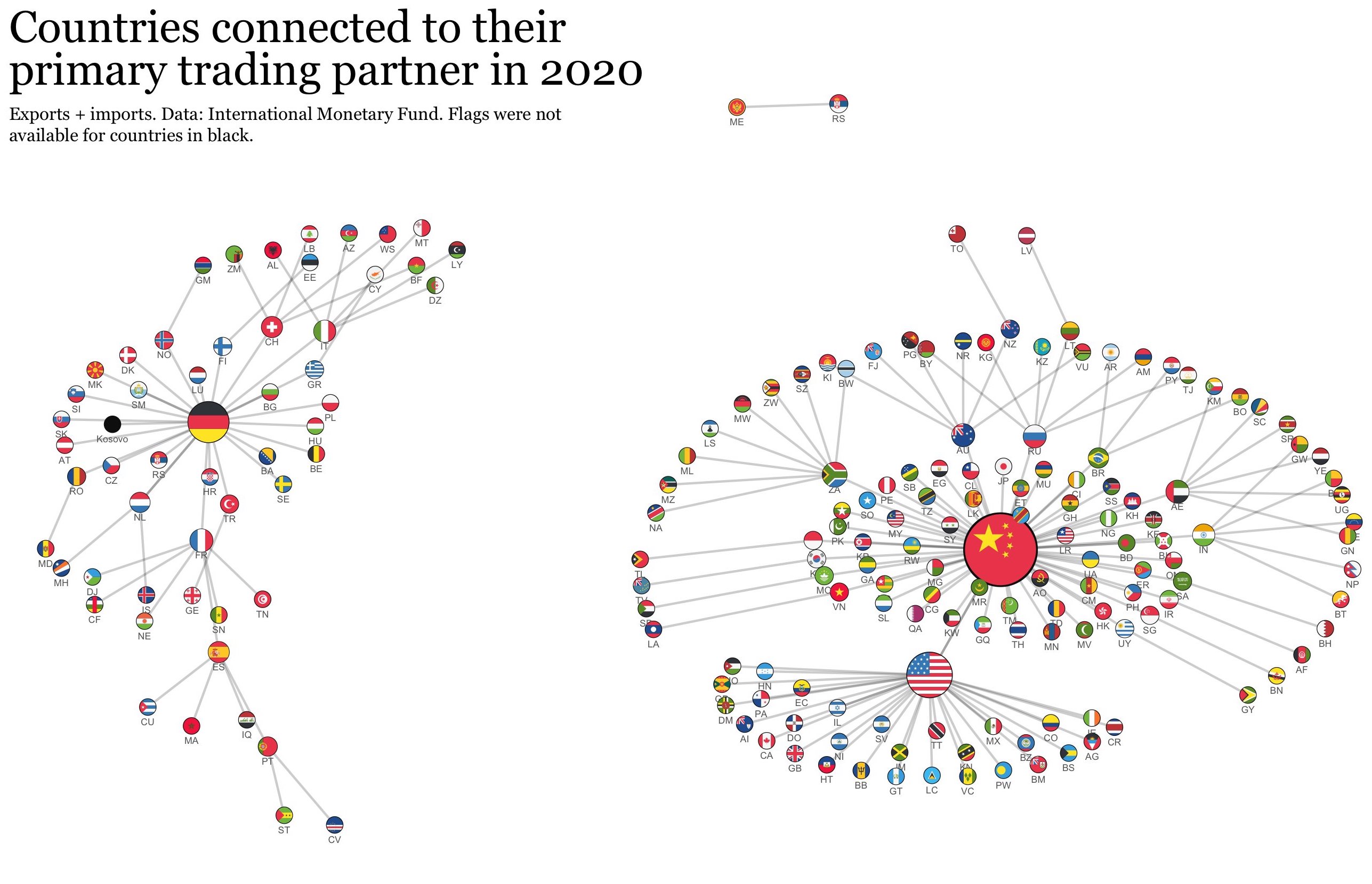

 www.visualcapitalist.com
www.visualcapitalist.com
Which is why I mentioned Africa's peak population, along with the peak populations of the various African countries themselves, being constantly revised downwards recently as its fertility levels fall, those numbers are already mostly outdated.Nigeria will overtake China's population by 2100 , Nigeria will be no.2 in world population with 760 million people . Chinas population will have halved to 730 million, Curries will be no.1 with 1 billion Indian population
For Nigeria, which has Africa's biggest population numbering about 213m people, the UN has reduced its forecast for 2060 by more than 100m people (down to around 429m). By 2100 it expects the country to have about 550m people, more than 350m fewer than it reckoned a decade ago.

Blacks will still be viewed as sex crazed savages and have BBC Halo in 22nd century, While Asians would have turned into AI robots splicing their DNA with genetic engineering, and Whites would have become minority in the USA . Curries would have stolen all the top jobs in the West.They are in a completely different situation than the USSR in terms of isolation and so on though?
The USSR for example was a complete midget in terms of international trade, trading just with the few countries in its sphere of influence while the world trade was completely dominated by its rivals and opponents, meanwhile China is the biggest trading partner of the majority of world's countries.




Visualizing Countries Grouped by Their Largest Trading Partner (1960-2020)
International trade has evolved drastically over the years. While China dominates now, the landscape was much different a few decades ago.www.visualcapitalist.com
Which is why I mentioned Africa's peak population, along with the peak populations of the various African countries themselves, being constantly revised downwards recently as its fertility levels fall, those numbers are already mostly outdated.

The world’s peak population may be smaller than expected
New evidence suggests Africa’s birth rates are falling fastwww.economist.com
That's a pretty likely future tbhBlacks will still be viewed as sex crazed savages and have BBC Halo in 22nd century, While Asians would have turned into AI robots splicing their DNA with genetic engineering, and Whites would have become minority in the USA . Curries would have stolen all the top jobs in the West.
@starcrapoo @WorthlessSlavicShitThey are in a completely different situation than the USSR in terms of isolation and so on though?
The USSR for example was a complete midget in terms of international trade, trading just with the few countries in its sphere of influence while the world trade was completely dominated by its rivals and opponents, meanwhile China is the biggest trading partner of the majority of world's countries.



I feel you'e failing to take into account Automation and AI. China may still be able to rise up if they can utilize those technologies sufficiently in spite of their upcoming demographic collapse@starcrapoo @WorthlessSlavicShit
1) I would challenge your idea that sheer # of trading partners is the best metric. China has been the "world's workshop" and deals with lower-priced goods accessible to a wide range of poorer countries. The goods of countries like US, Germany and Japan for exampleare not being bought by many countries like Malaysia, Vietnam, Pakistan, etc.
2) The actual dollar amount of international trade per capita of China is actually much less impressive. (Germany is actually #1 by a large margin in this metric)
3) China's economy is 29% real estate (bad sign since it's a poor driver of growth), though its external debt position is good it is saddled with massive domestic debt and many signs point to its workforce supply has peaked and is declining (at this point everyone who is going to move to the urban centers and factories has done so and the average worker's age is rising rapidly).
4) Releated to #3, you will notice that as China's economy has matured and become near first-world, it's manufacturing is DECREASING. Yes, it will not have manufacturing to drive it's economy into the 22nd century. Even the biggest staple of Chinese higher-priced manufacturing in China: Apple, has started moving some production to places like India and Vietnam where labor supply is cheaper and more abundant and Tim Cook has privately stated Apple's goal of cutting it's Chinese manufacturing to under 50% in a short time table. Meanwhile, China is doing POORLY in transitioning to it's own high-priced manufacturing (e.g. Germany and Japan) or high-priced services (USA). For anecdotes, consider who is buying Chinese automobiles or electronics, or who is listing companies on Shanghai or depositing money in Chinese financial institutions (almost nobody outside of Chinese citizens).
5) Chinese geopolitics is very negative. For the last several years, CCP has tried to court foreign investment and even immigration with very poor results. These includes attempts at recruiting foreign students and tech employees, "guaranteeing" foreign company rights, and even attempting to establish "fair" international courts in Beijing and Shanghai to resolve trade and international business disputes. To say it isn't working is an understatement. And the ties to North Korea, belligerence towards Taiwan, embargoes in the South China Sea, mistrust over likely COVID coverups, alignment with Russia, etc. is not helping.
I think if you want to FORECAST the future, you have to put 99% of the weight on trends and not statistics about the static situation. Shanghai is beautiful and modern. Chinese trade as you said is widespread. But the trends are all bad. Actually the high debts, poor population growth and over-levered economy is reminiscent of 1980s Japan. Back then, the popular opinion of average Americans was that Japan would overtake the USA by 2000. In fact, the capital value of Japan was so pumped up that lists of the wealthiest people in the world was dominated by Japanese nationals for much of the 1980s. But obviously that didn't last.
That all said, trends CAN change. Most economists and think tanks focused on international trade believe the focus point of the future will be semiconductors. China cannot produce high-end computer chips and relies on European and American technology for design and Taiwan for chip manufacturing. And it is seemingly impossible to catch up by themselves in isolation. Meanwhile, European, American and Australia has slowly been banning Chinese tech outright most noticeable Huawei which was a world leader in 5G just a couple of years ago but is now basically banned for political and strategic reasons.
For all my negative opinions on China's future - I will say 1 good thing: China is doing great in hoarding real earth metals crucial for technology - both from the mainland as well as in Africa and now after US's withdrawal from Afghanistan - in the middle east as well. Conceivably, this will pump them up in the same way that oil has done for the Saudis albeit to a lesser degree.
TL;DR: China has done amazing and is beautiful and modern and first-world in it's major cities. But it has passed its peak and the trends show it is in DECLINE not growth.
God willing.
People forget the richest man in world history was a black emperor. The negro race can and will return to its rightful place.
I didn't. The biggest bottleneck to AI development is the high-end computer chips that I was talking about. As I said, most economists think that semiconductors will be the focus point in the future and a big part of that is AI. Also like I said, China has some obstacles in catching up to the US, which is currently the leader in AI - the design of the most advanced chips for AI is American (namely NIVIDIA) and the manufacturing capability is Taiwan, and also like I said before - the US and it's allies are hell bent in boxing China out. Christopher Miller, an associate professor at Tufts University and author of "Chip War" has this take on whether China or the US is better positioned to rule AI in the future:I feel you'e failing to take into account Automation and AI. China may still be able to rise up if they can utilize those technologies sufficiently in spite of their upcoming demographic collapse
"If you asked me would I rather be in a camp that involves all of the world's most advanced economies that are at the cutting edge, or would I rather be in a camp that only involves China and is several generations behind the cutting edge, I think that's an easy question to answer."
Fair point, I was talking more in terms of geopolitics. Soviet Union was highly autarkic and barely traded with anyone, while the Chinese have economic relationship was basically everyone.@starcrapoo @WorthlessSlavicShit
1) I would challenge your idea that sheer # of trading partners is the best metric. China has been the "world's workshop" and deals with lower-priced goods accessible to a wide range of poorer countries. The goods of countries like US, Germany and Japan for exampleare not being bought by many countries like Malaysia, Vietnam, Pakistan, etc.
Quite impressive, but, as much as I myself love using per capita figures in internet arguments, they are pretty much irrelevant when it comes to measuring a nation's global influence. In that area, it's the total figures, in which China has the lead.2) The actual dollar amount of international trade per capita of China is actually much less impressive. (Germany is actually #1 by a large margin in this metric)
Yup. They pretty openly talk about this being some of their biggest problems at the moment and are trying to deal with it by getting the population to divest from real estate and so on. It is questionable how much they can change and how quickly, for sure, but even though they very likely won't be able to completely deal with this, there's a very good chance that they'll be able to achieve this transition at least partly, so it's questionable how much of a problem it will ultimately be.3) China's economy is 29% real estate (bad sign since it's a poor driver of growth), though its external debt position is good it is saddled with massive domestic debt
True, now the question is whether they can compensate by increasing their productivity and changing focus on innovation. Frankly, I think they will successfully do this. We've already seen multiple countries with nowhere near China's massive resources (massive amount of STEM graduates and nearly-unmatched finances) get through a shrinking workforce and demographic decline by massive investments into innovation and R&D, such as South Korea whose industrial productivity constantly rose in the last couple of decades even during the times their industrial workforce shrunk, or the Baltics going from post-Soviet hellholes into start-up hubs with more start-ups per capita than Western European countries.and many signs point to its workforce supply has peaked and is declining (at this point everyone who is going to move to the urban centers and factories has done so and the average worker's age is rising rapidly).
Is it though? I'm really not sure, the graphs I've seen claim that their manufacturing is still decently growing and improving as a percentage of world one, while decreasing as a percentage of their own GDP, which is honestly impressive and kind of a flex.4) Releated to #3, you will notice that as China's economy has matured and become near first-world, it's manufacturing is DECREASING. Yes, it will not have manufacturing to drive it's economy into the 22nd century. Meanwhile, China is doing POORLY in transitioning to it's own high-priced manufacturing (e.g. Germany and Japan) or high-priced services (USA). For anecdotes, consider who is buying Chinese automobiles or electronics, or who is listing companies on Shanghai or depositing money in Chinese financial institutions (almost nobody outside of Chinese citizens).
Yeah, there's a lot of distrust between the West and China, but their inflows of FDI have nonetheless been constantly growing and are now pretty much the highest they've ever been.5) Chinese geopolitics is very negative. For the last several years, CCP has tried to court foreign investment and even immigration with very poor results. These includes attempts at recruiting foreign students and tech employees, "guaranteeing" foreign company rights, and even attempting to establish "fair" international courts in Beijing and Shanghai to resolve trade and international business disputes. To say it isn't working is an understatement.
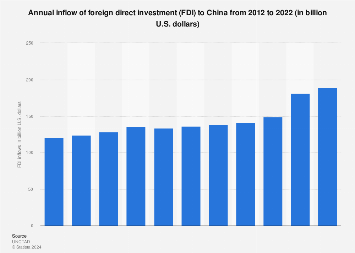

 incels.is
incels.is
True, they have a lot of problems with the West, but the rest of the world, who they are increasingly focusing on, is neutral towards them at worst.And the ties to North Korea, belligerence towards Taiwan, embargoes in the South China Sea, mistrust over likely COVID coverups, alignment with Russia, etc. is not helping.
Yeah, they need to try avoiding having their own lost decade, but frankly, even if they have, it's questionable how much that will devastate them. Japan is still very powerful and rich, after all, and their economy has been anemic for decades by now. From what I've seen, even most people saying that they will go the way of Japan are saying that they'll simply grow slower than they should, but nevertheless will grow faster than the US for quite some time.I think if you want to FORECAST the future, you have to put 99% of the weight on trends and not statistics about the static situation. Shanghai is beautiful and modern. Chinese trade as you said is widespread. But the trends are all bad. Actually the high debts, poor population growth and over-levered economy is reminiscent of 1980s Japan. Back then, the popular opinion of average Americans was that Japan would overtake the USA by 2000. In fact, the capital value of Japan was so pumped up that lists of the wealthiest people in the world was dominated by Japanese nationals for much of the 1980s. But obviously that didn't last.
Yup. I've been watching this for about the last year, and I definitely can't claim to be an expert, but from what I've seen, their position there legitimately seems a bit better then it was just a year or so ago. They don't have much of a problem manufacturing mature/legacy semiconductors, and for the high-end stuff, sure, they can't create EUV lithography machines, which are the one true bottleneck for them here, but they have already bough a decent enough number of them that, along with using modified DUV machines capable of creating those high-end chips at a much higher price and at a much lower amount, Huawei actually is preparing to restart smartphone production maybe even as soon as this year. This is pretty significant, since so far it's mostly smartphones and so on where those high-end, 7nm and lower chips are used, while the legacy chips China has no real problem creating are still used in a wide variety of products, and most importantly in weapons systems.That all said, trends CAN change. Most economists and think tanks focused on international trade believe the focus point of the future will be semiconductors. China cannot produce high-end computer chips and relies on European and American technology for design and Taiwan for chip manufacturing. And it is seemingly impossible to catch up by themselves in isolation. Meanwhile, European, American and Australia has slowly been banning Chinese tech outright most noticeable Huawei which was a world leader in 5G just a couple of years ago but is now basically banned for political and strategic reasons.
Yup, they have some serious advantage here. Will be interesting to see how they'll be using it in the future.For all my negative opinions on China's future - I will say 1 good thing: China is doing great in hoarding real earth metals crucial for technology - both from the mainland as well as in Africa and now after US's withdrawal from Afghanistan - in the middle east as well. Conceivably, this will pump them up in the same way that oil has done for the Saudis albeit to a lesser degree.
Fair enough. I wouldn't be so pessimistic about them, I legitimately don't see them facing any problem which other countries haven't already faced as well and successfully dealt with, apart from their lack of high-level lithography machines along with the technological sactions on them, which there's a real question whether they can deal with it, but if they do, I don't think there's much more the West can do against them.TL;DR: China has done amazing and is beautiful and modern and first-world in it's major cities. But it has passed its peak and the trends show it is in DECLINE not growth.
Exactly, they're installing industrial robots like their lives depended on it.I feel you'e failing to take into account Automation and AI. China may still be able to rise up if they can utilize those technologies sufficiently in spite of their upcoming demographic collapse
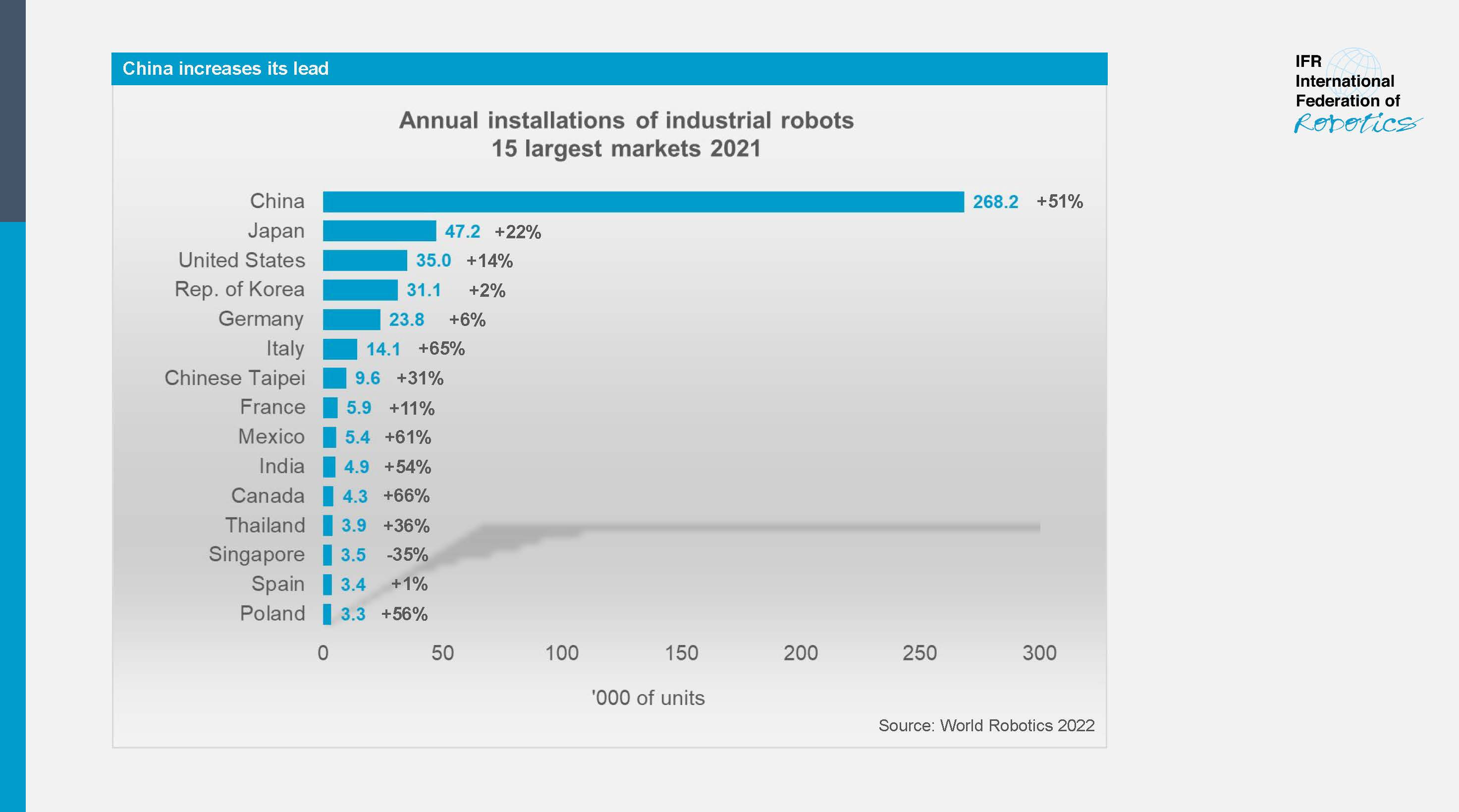
I didn't. The biggest bottleneck to AI development is the high-end computer chips that I was talking about. As I said, most economists think that semiconductors will be the focus point in the future and a big part of that is AI. Also like I said, China has some obstacles in catching up to the US, which is currently the leader in AI - the design of the most advanced chips for AI is American (namely NIVIDIA) and the manufacturing capability is Taiwan, and also like I said before - the US and it's allies are hell bent in boxing China out. Christopher Miller, an associate professor at Tufts University and author of "Chip War" has this take on whether China or the US is better positioned to rule AI in the future:
Two things though that could substantially hurt China could occur imo though:Fair point, I was talking more in terms of geopolitics. Soviet Union was highly autarkic and barely traded with anyone, while the Chinese have economic relationship was basically everyone.
Quite impressive, but, as much as I myself love using per capita figures in internet arguments, they are pretty much irrelevant when it comes to measuring a nation's global influence. In that area, it's the total figures, in which China has the lead.
Yup. They pretty openly talk about this being some of their biggest problems at the moment and are trying to deal with it by getting the population to divest from real estate and so on. It is questionable how much they can change and how quickly, for sure, but even though they very likely won't be able to completely deal with this, there's a very good chance that they'll be able to achieve this transition at least partly, so it's questionable how much of a problem it will ultimately be.
True, now the question is whether they can compensate by increasing their productivity and changing focus on innovation. Frankly, I think they will successfully do this. We've already seen multiple countries with nowhere near China's massive resources (massive amount of STEM graduates and nearly-unmatched finances) get through a shrinking workforce and demographic decline by massive investments into innovation and R&D, such as South Korea whose industrial productivity constantly rose in the last couple of decades even during the times their industrial workforce shrunk, or the Baltics going from post-Soviet hellholes into start-up hubs with more start-ups per capita than Western European countries.
Is it though? I'm really not sure, the graphs I've seen claim that their manufacturing is still decently growing and improving as a percentage of world one, while decreasing as a percentage of their own GDP, which is honestly impressive and kind of a flex.
View attachment 825448View attachment 825446
Also, their car industry is currently growing crazy quickly, which can change for sure, but still.
Yeah, there's a lot of distrust between the West and China, but their inflows of FDI have nonetheless been constantly growing and are now pretty much the highest they've ever been.

China: FDI inward flows 2023 | Statista
In 2023, the value of foreign direct investment (FDI) inflows to China reached approximately 163.25 billion U.S.www.statista.com
Also, I already pointed this out, but they've somehow managed to overtake the US in net migration of scientists, which I myself still find hard to believe.

China and the non-US G7 members gained more scientists in 2021 than the US.
I've seen a lot of crazy graphs already, both in general as well as concerning USA-China rivalry in particular, but this one is definitely among the top ones of those. I can barely believe that this is actually true tbh:worryfeels...incels.is
True, they have a lot of problems with the West, but the rest of the world, who they are increasingly focusing on, is neutral towards them at worst.
Yeah, they need to try avoiding having their own lost decade, but frankly, even if they have, it's questionable how much that will devastate them. Japan is still very powerful and rich, after all, and their economy has been anemic for decades by now. From what I've seen, even most people saying that they will go the way of Japan are saying that they'll simply grow slower than they should, but nevertheless will grow faster than the US for quite some time.
Yup. I've been watching this for about the last year, and I definitely can't claim to be an expert, but from what I've seen, their position there legitimately seems a bit better then it was just a year or so ago. They don't have much of a problem manufacturing mature/legacy semiconductors, and for the high-end stuff, sure, they can't create EUV lithography machines, which are the one true bottleneck for them here, but they have already bough a decent enough number of them that, along with using modified DUV machines capable of creating those high-end chips at a much higher price and at a much lower amount, Huawei actually is preparing to restart smartphone production maybe even as soon as this year. This is pretty significant, since so far it's mostly smartphones and so on where those high-end, 7nm and lower chips are used, while the legacy chips China has no real problem creating are still used in a wide variety of products, and most importantly in weapons systems.
Which is not even bringing up the fact that, ultimately, the US' entire strategy here hinges solely on China being unable to invent and create its own EUV machines, which isn't a bad bet considering how difficult they are to create, but if they do manage to get through this bottleneck, as many industry insiders seem to expect them to do in about 10 years, this entire strategy falls apart, since they have everything else they need already.
Yup, they have some serious advantage here. Will be interesting to see how they'll be using it in the future.
Fair enough. I wouldn't be so pessimistic about them, I legitimately don't see them facing any problem which other countries haven't already faced as well and successfully dealt with, apart from their lack of high-level lithography machines along with the technological sactions on them, which there's a real question whether they can deal with it, but if they do, I don't think there's much more the West can do against them.
Exactly, they're installing industrial robots like their lives depended on it.

Niggers wont do shitno, blacks wont ever take over the world, they mass kill each other, in USA blacks are more likely to be killed by other blacks than whites, plus abortion clinics are a meat grinder of nigger spawn so their population will never grow up plus with race mixing they are bleached from generation to generation until their genes are lost, they will always be a minority anywhere they go, USA 13% BRAZIL 7% and on and on
are you still aliveGod willing.
People forget the richest man in world history was a black emperor. The negro race can and will return to its rightful place.
hahaha copeIndia's birth rates are already collapsing
God willing.
People forget the richest man in world history was a black emperor. The negro race can and will return to its rightful place.
no, blacks wont ever take over the world, they mass kill each other, in USA blacks are more likely to be killed by other blacks than whites, plus abortion clinics are a meat grinder of nigger spawn so their population will never grow up plus with race mixing they are bleached from generation to generation until their genes are lost, they will always be a minority anywhere they go, USA 13% BRAZIL 7% and on and on
the thing is this black population explosion is the stupidity of whites.+ AIDS and other artificifial viruses if needed to keep their population in control (yes AIDS is a bioweapon to control Black population).
People forget the richest man in world history was a black emperor. The negro race can and will return to its rightful place.





